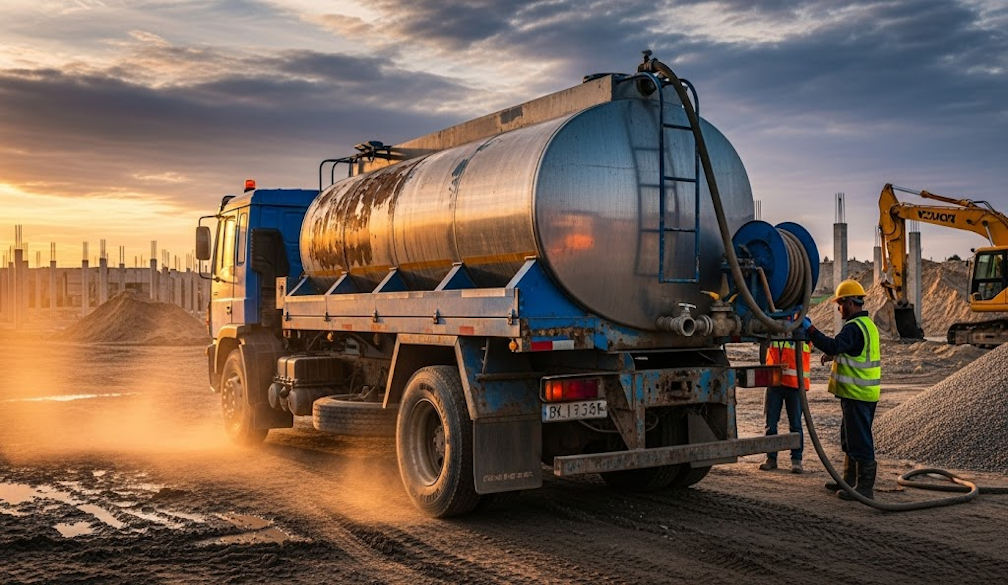Everything You Need to Know About a Lorry Water Tank and Its Uses

A lorry water tank plays an essential role in industries and applications where large-scale water transportation is required. From construction sites and agriculture to firefighting and municipal services, these mobile water tanks are designed to deliver and store significant volumes of water efficiently. Their versatility and capacity make them a crucial asset for both public and private operations.
What is a Lorry Water Tank?
A lorry water tank is a large water container mounted on a truck chassis, specifically designed to transport, store, and dispense water. Depending on the industry, these tanks can be custom-built to hold anywhere from a few thousand litres to tens of thousands of litres.
They are constructed from robust materials such as steel, stainless steel, or high-density polyethylene (HDPE), ensuring they can withstand the demands of frequent transportation and heavy-duty use. The lorry is often fitted with pumps, hoses, and spraying systems to allow for easy water distribution.
Key Uses of a Lorry Water Tank
A lorry water tank is used across various sectors, each with its own unique demands:
Construction Industry – On building sites, dust suppression is a major concern. Lorry water tanks are used to spray water over dusty areas, keeping the site compliant with safety and environmental standards. They can also be used for soil compaction and providing water for on-site mixing.
Agriculture – Farmers rely on lorry water tanks for irrigation in areas without fixed water infrastructure. These tanks can deliver water directly to crops, livestock, or remote agricultural fields, especially during dry seasons.
Firefighting – Rural and remote firefighting teams often use lorry-mounted tanks to deliver water where hydrants are unavailable. They can be a critical resource in emergency situations, supplying water for firefighting efforts or refilling smaller firefighting vehicles.
Municipal Services – Local councils may use lorry water tanks for street cleaning, watering public gardens, or providing emergency water supplies during infrastructure failures.
Event Management – Outdoor festivals, concerts, and temporary work sites may require water supply for sanitation, catering, or cooling systems, which can be met with a lorry water tank.
Design and Capacity Considerations
When choosing a lorry water tank, capacity is a key factor. The size depends on the application—construction sites may require tanks of 10,000 litres or more, while smaller community projects might only need 5,000 litres.
Material choice is also crucial. Stainless steel tanks offer durability and resistance to corrosion, making them ideal for long-term use and potable water storage. HDPE tanks are lighter and corrosion-resistant, suitable for non-potable uses like dust suppression.
The design may include baffles inside the tank to prevent water surging during transport, improving vehicle stability. Additional features such as spray bars, high-pressure hoses, and in-cab pump controls enhance the tank’s versatility.
Benefits of Using a Lorry Water Tank
The main advantage of a lorry water tank is mobility. Unlike fixed water storage systems, a lorry-mounted tank can deliver water to multiple locations quickly and efficiently. This is invaluable for industries operating in remote or infrastructure-limited areas.
Another benefit is flexibility—these tanks can be adapted for multiple uses within a single organisation. For example, a construction company can use the same tank for dust suppression, soil compaction, and providing drinking water for workers.
Lorry water tanks also contribute to operational efficiency by reducing downtime. Instead of relying on fixed pipelines or waiting for small water deliveries, businesses can control their own supply schedules.
Maintenance and Safety
Regular maintenance of a lorry water tank is essential for ensuring safety, efficiency, and compliance with industry regulations. Tanks should be inspected for leaks, rust, and structural damage. Pumps, hoses, and spray systems need regular servicing to maintain performance.
If the tank is used for potable water, it must be cleaned regularly to prevent contamination. For industrial uses, cleaning can also help prolong the life of the tank and prevent blockages in the spray systems.
Safety measures include ensuring the water tank is securely mounted on the lorry and that load distribution is balanced to prevent instability during transport. Operators should also be trained in the correct use of pumps and spraying equipment.
Customisation Options
Manufacturers of lorry water tanks offer customisation to meet specific industry needs. This can include installing high-capacity pumps, adjustable spray nozzles, temperature control systems, and even compartments for carrying different water types simultaneously.
Some advanced tanks are equipped with GPS tracking and remote monitoring systems, allowing operators to track usage, water levels, and location in real time—valuable for large-scale projects or emergency services.
Final Thoughts
A lorry water tank is more than just a mobile water container—it’s a vital piece of equipment that supports industries, communities, and emergency services. Whether it’s for agriculture, construction, firefighting, or public works, the ability to transport large quantities of water efficiently can make all the difference in productivity and safety. With proper maintenance and the right features, a lorry water tank can be a long-lasting, cost-effective investment.





